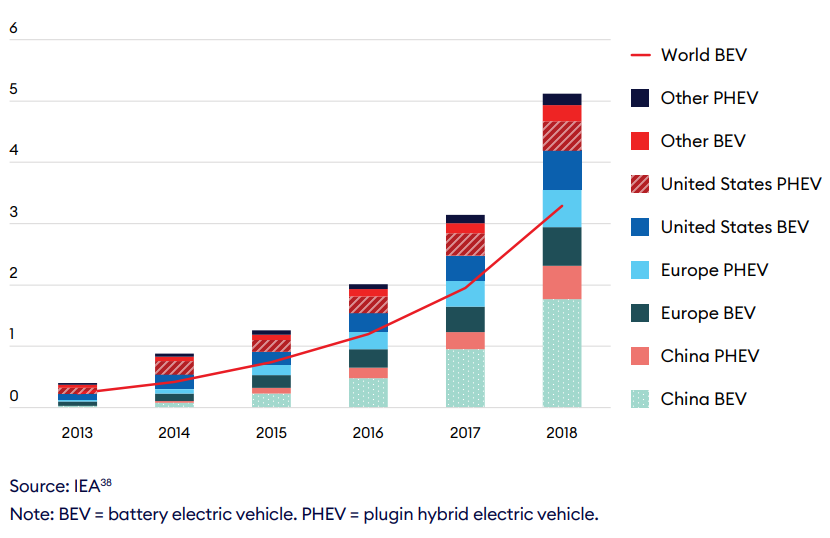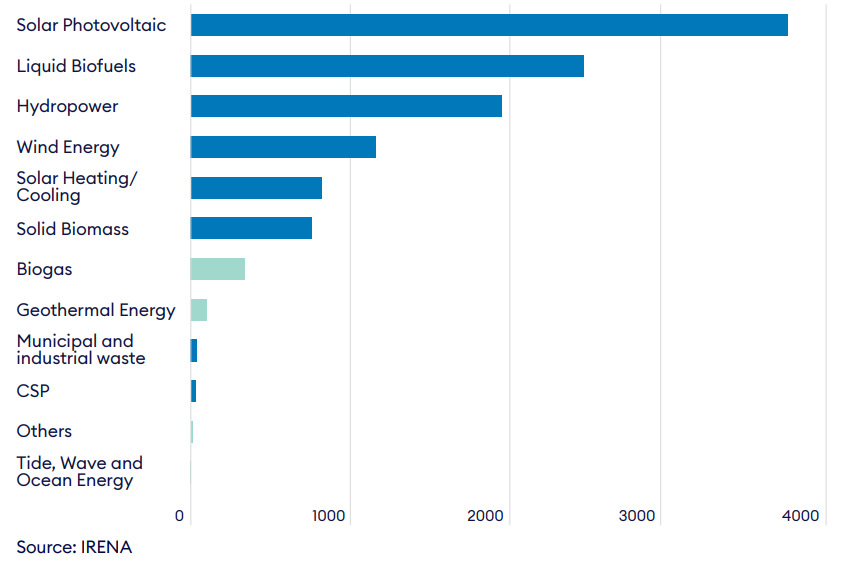Clean growth means facilitating economic development and improving standards of living, while protecting natural resources and ecosystems on which our well-being relies. The transition to a low-carbon economy requires mobilising investment and innovation to develop opportunities for inclusive and sustainable growth.
Achieving global net zero greenhouse gas (GHG) emissions by 2050 requires investment of US$1–2trn per year, which equates to roughly 1–1.5% of global GDP according to the Energy Transitions Commission (ETC) – funding to facilitate a green industrial revolution.1 After years of underperformance and “boom–bust” cycles, several clean tech sectors are thriving, fuelled by consumer demand and private and public investment. The global market for low-carbon goods and services has been estimated at US$4.2trn, spanning everything from recycling and the circular economy to environmental performance analytics and labelling.2
Electric growth: Electric car stocks in selected countries, 2013-2018

Rapidly increased demand and investment in innovation has made several clean technologies, such as the renewable energy, electric vehicles (EVs), and energy-efficiency systems cost-competitive and ready for broader deployment. Wind energy costs in the US, for instance, have fallen from over 55 cents per kilowatt-hour in 1980 to under 3 cents today.3 Globally, solar photovoltaic costs have fallen 82% over the last decade, according to the International Renewable Energy Agency (IRENA).4 However, the net zero transition requires further innovation in technologies and services, such as carbon capture and storage, synthetic biology, carbon accounting, and others to reduce emissions from hard to abate sectors and activities.
Global renewable energy employment by techology, 2019

Given the scale and the global nature of the challenge, international trade and investment is critical to the necessary innovation, development and diffusion of green goods and services. It also presents significant opportunities for business and countries that are able to develop innovative and productive capabilities and capacities in key clean growth sectors. The “Build Back Better” vision of recovery programmes following the Covid-19 pandemic – in which the fiscal demands of crisis recovery are seen as an opportunity to grapple with longstanding economic and social problems – has diverted significant funding towards the clean growth transition.5 It is crucial that this “green industrial policy” aims to make the clean transition “just”, by alleviating the social and economic costs by diversifying economic activity and helping people adapt in a changing labour market, without resorting to unwarranted protectionism.








